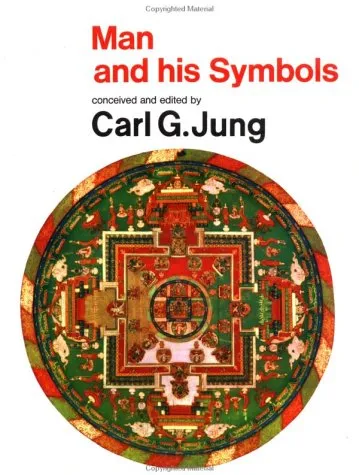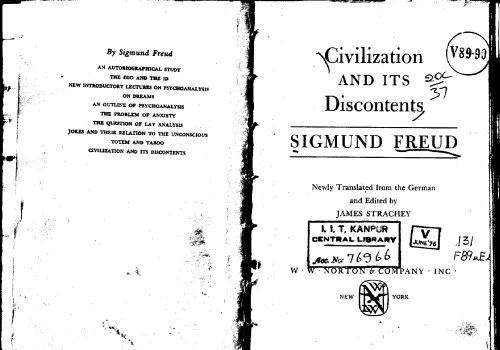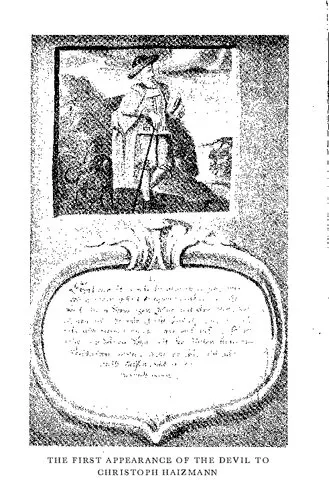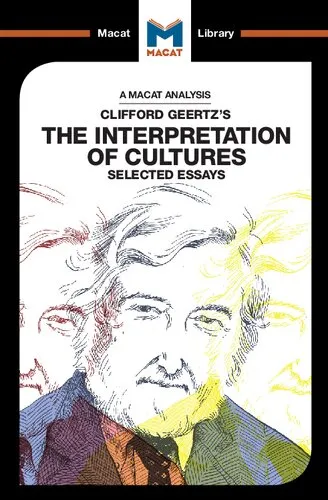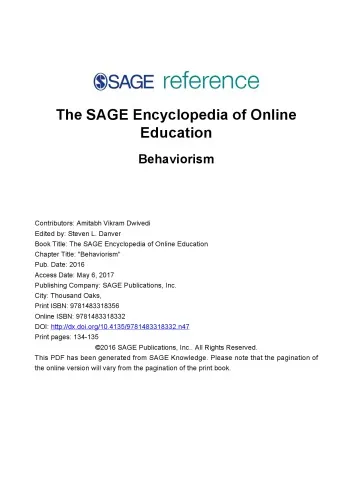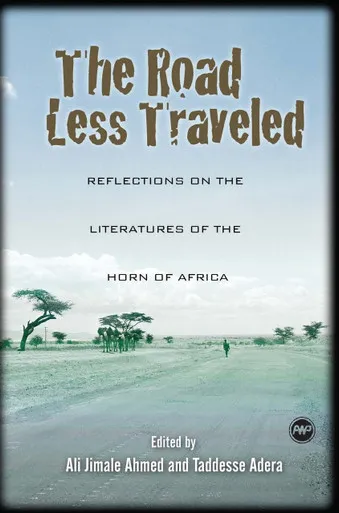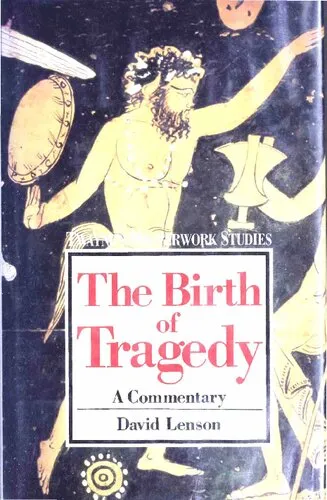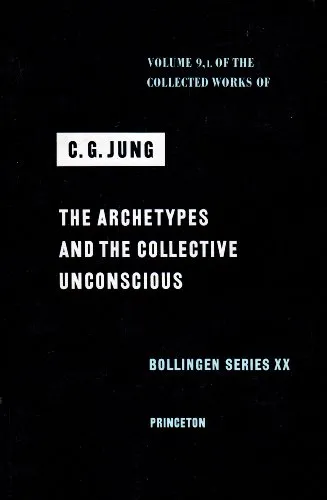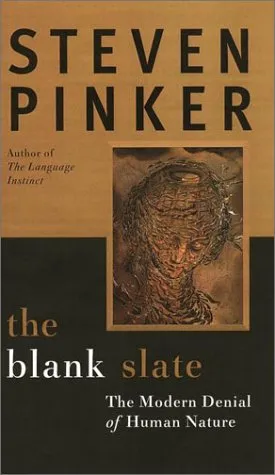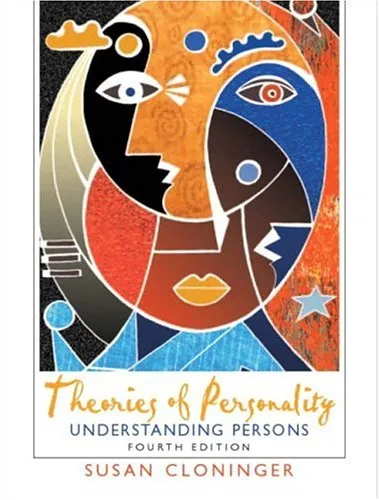The Blank Slate. Modern Denial of Human Nature [html,ugly]
4.0
بر اساس نظر کاربران

شما میتونید سوالاتتون در باره کتاب رو از هوش مصنوعیش بعد از ورود بپرسید
هر دانلود یا پرسش از هوش مصنوعی 2 امتیاز لازم دارد، برای بدست آوردن امتیاز رایگان، به صفحه ی راهنمای امتیازات سر بزنید و یک سری کار ارزشمند انجام بدینکتاب های مرتبط:
معرفی کتاب 'The Blank Slate. Modern Denial of Human Nature'
کتاب 'The Blank Slate' نوشته استیون پینکر یکی از برجستهترین آثار در حوزه روانشناسی تکاملی و درک ماهیت انسانی است. این کتاب واکنشی به نظریهای گسترده در علوم اجتماعی و فلسفه است که ذهن انسان به مثابه لوحی سفید و خالی از هرگونه تأثیرات زیستی و ژنتیکی تعبیر میکند.
خلاصهای جامع از کتاب
استیون پینکر در کتاب 'The Blank Slate' به چالش با نظریه کلاسیکی میپردازد که انسان را به عنوان موجودی بدون پیشزمینه ژنتیکی و بیولوژیکی توصیف میکند. او این ایده را شرح میدهد که چگونه روانشناسی تکاملی نقش کلیدی در تعیین رفتارها و ویژگیهای انسانی ایفا میکند. پینکر با استفاده از تحقیقات علمی و شواهد تاریخی، این دیدگاه را مطرح میکند که ذهن انسان بیشتر از یک لوح سفید است و دارای چندین لایه پیچیده براساس نخستین غرایز و ساختار ژنتیکی است. این کتاب به بررسی سه نظریه رایج در فهم انسان میپردازد: لوح سفید، نجیب وحشی، و ارواح ماشین.
نکات کلیدی
- رد کامل نظریهها و فرضیههایی که تأثیر ژنتیکی بر ذهن انسان را انکار میکنند.
- یادگیری تفاوتهای ذاتی و اکتسابی در انسانها و تأثیر آنها بر جوامع.
- تبیین اهمیت Psychology Evolutionary در درک گونههای انسانی و تکامل رفتاری.
- شناسایی تناقضات در دیدگاههای لیبرالی و محافظهکارانه در برابر ماهیت انسانی.
نقلقولهای معروف از کتاب
استیون پینکر: "روانشناسی تکاملی نشان میدهد که طبیعت انسانی نه تنها واقعی است بلکه تأثیر عمیقی بر اجتماعی کردن و فرهنگسازی دارد."
"ذهن انسان از یک لوح اشتباه تشکیل نشده، بلکه ساختاری پیچیده است که با گذشت هزاران سال تکامل یافته است."
اهمیت کتاب
کتاب 'The Blank Slate' به دلیل تلاشهای منحصر به فردش در تجزیه و تحلیل و فهم ماهیت انسانی در برابر پاردایمهای اجتماعی و تحولات فرهنگی اهمیت دارد. پینکر به خوبی نشان میدهد که چرا درک درست از طبیعت انسان برای ارتقاء و تحول جوامع امری ضروری است. این کتاب ابزاری ارزشمند برای دانشجویان علوم اجتماعی، فلسفه، و روانشناسی محسوب میشود و تأثیری عمیق بر مباحثات علمی و اجتماعی فعلی دارد.
Introduction to 'The Blank Slate: Modern Denial of Human Nature'
Steven Pinker's "The Blank Slate: The Modern Denial of Human Nature" challenges the entrenched notions of human malleability and explores the core aspects of human nature. In an intellectual landscape often dominated by the idea that human beings are infinitely adaptable and free from any inherent characteristics, Pinker argues for a nuanced understanding of the interplay between nature and nurture. This book is a critical examination of age-old beliefs, aiming to shatter myths and lay bare the influences of genetics, evolution, and biology on human behavior. It is as much a critique as it is an enlightening journey into understanding what truly makes us who we are.
Detailed Summary of the Book
The premise of "The Blank Slate" revolves around three historical arguments—the blank slate, the noble savage, and the ghost in the machine. These concepts, Pinker suggests, have dominated Western thought but fail to acknowledge the scientific understanding of human nature. The 'blank slate' signifies the idea that individuals are born without built-in mental content, painting a picture of the mind as a tabula rasa. In discarding this ideology, Pinker draws on areas such as cognitive science, behavioral genetics, and evolutionary psychology.
The book is divided into several parts that deal with fears about what acknowledging human nature entails—ranging from inequality to determinism and nihilism. By methodically dispelling myths around these fears, Pinker encourages readers to embrace, rather than fear, the truths science uncovers about our species. The narrative is enriched with anecdotes and references to literature, art, and current events, bridging the scientific with the humanistic.
Key Takeaways
- The rejection of the blank slate theory acknowledges inherent human traits influenced by genetics and evolution.
- Understanding human nature requires a balanced view that incorporates both biological inheritance and environmental factors.
- Fear of acknowledging human nature—often tied to concerns over morality and political ideology—is addressed with factual scientific groundwork.
- Pinker encourages an integration of scientific insights into discussions about culture, society, and policy.
- The exploration of these themes is not confined to academics but positioned to impact everyday understanding and perceptions of human behavior.
Famous Quotes from the Book
"Human nature is the set of universal, inborn proclivities that guide human behavior."
"Ignorance of one’s true nature is only an obstacle in the search for happiness."
"The Blank Slate is not an empirical theory but a moral doctrine."
Why This Book Matters
"The Blank Slate" holds significant relevance as it challenges misconceptions that have long been ingrained in societal norms. Pinker’s work is crucial for fostering a scientific approach to understanding humanity, one that accepts evolution and genetic influence alongside cultural developments. This balance is essential for advancing knowledge in areas such as psychology, anthropology, and social policy. By addressing fears about inequality and determinism that are often associated with acknowledging human nature, Pinker opens the door to discussions that can inform better decision-making in politics, education, and beyond.
Overall, the book’s contribution lies not just in refuting the blank slate concept but also in offering a roadmap for integrating science with the complexities of human society. By doing so, it remains a pivotal piece of literature in both academic circles and public discourse.
دانلود رایگان مستقیم
شما میتونید سوالاتتون در باره کتاب رو از هوش مصنوعیش بعد از ورود بپرسید
دسترسی به کتابها از طریق پلتفرمهای قانونی و کتابخانههای عمومی نه تنها از حقوق نویسندگان و ناشران حمایت میکند، بلکه به پایداری فرهنگ کتابخوانی نیز کمک میرساند. پیش از دانلود، لحظهای به بررسی این گزینهها فکر کنید.
این کتاب رو در پلتفرم های دیگه ببینید
WorldCat به شما کمک میکنه تا کتاب ها رو در کتابخانه های سراسر دنیا پیدا کنید
امتیازها، نظرات تخصصی و صحبت ها درباره کتاب را در Goodreads ببینید
کتابهای کمیاب یا دست دوم را در AbeBooks پیدا کنید و بخرید
1394
بازدید4.0
امتیاز0
نظر98%
رضایتنظرات:
4.0
بر اساس 0 نظر کاربران
Questions & Answers
Ask questions about this book or help others by answering
No questions yet. Be the first to ask!
![The Blank Slate. Modern Denial of Human Nature [html,ugly]](https://s3.refhub.ir/images/thumb/The_Blank_Slate__Modern_Denial_of_Human_Natur_18866.webp)

